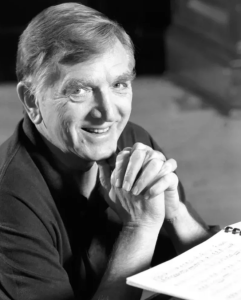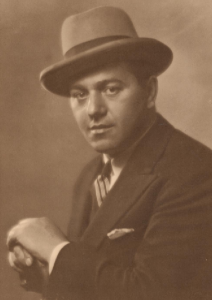Podcast: Play in new window | Download (Duration: 1:56:07 — 129.7MB) | Embed
Subscribe: Spotify | TuneIn | RSS | More
Today, Christmas Day 2023, is also the 93rd birthday of my teacher, the great John Wustman. I can think of no better way to conclude Season Four of Countermelody than with a tribute to the man who had the greatest influence on my development as a musician. He’s probably best-known for his work with Luciano Pavarotti and as the accompanist in more than thirty Music Minus One LPs from the early 1960s, as well as for his pioneering teaching of scores of accompanists. He has been called “the dean of American accompanists” and many other things, but to me he is and remains primarily my dear friend and mentor. From the late 1950s through the 1980s and beyond, he appeared with nearly all of the greatest singers on the planet, from Richard Tucker, William Warfield, Eleanor Steber, and Jennie Tourel; to Birgit Nilsson, Carlo Bergonzi, Régine Crespin, Nicolai Gedda, and Renata Scotto. He and Russian mezzo-soprano Irina Arkhipova won the 1973 Gran Prix du Disque for their legendary (and matchless) recording of Mussorgsky’s Songs and Dances of Death, only one of his many commercial recordings. I have been searching the internet for sound documents of his many live recordings and I’m pleased to say that I have found some rare ones to complement my reminiscences of studying with him in the late 1980s. He wrote to me just this past week that he is currently preparing another live performance of Schubert’s Winterreise in early 2024. I am so thrilled to pay tribute to the man who, through his powerful example and influence, forever changed the way I play, sing, talk about, think about, and hear music.
Countermelody is a podcast devoted to the glory and the power of the human voice raised in song. Singer and vocal aficionado Daniel Gundlach explores great singers of the past and present focusing in particular on those who are less well-remembered today than they should be. Daniel’s lifetime in music as a professional countertenor, pianist, vocal coach, voice teacher, and journalist yields an exciting array of anecdotes, impressions, and “inside stories.” At Countermelody’s core is the celebration of great singers of all stripes, their instruments, and the connection they make to the words they sing. By clicking on the following link (https://linktr.ee/CountermelodyPodcast) you can find the dedicated Countermelody website which contains additional content including artist photos and episode setlists. The link will also take you to Countermelody’s Patreon page, where you can pledge your monthly support at whatever level you can afford. Bonus episodes available exclusively to Patreon supporters are currently available and further bonus content including interviews and livestreams is planned for the upcoming season.



